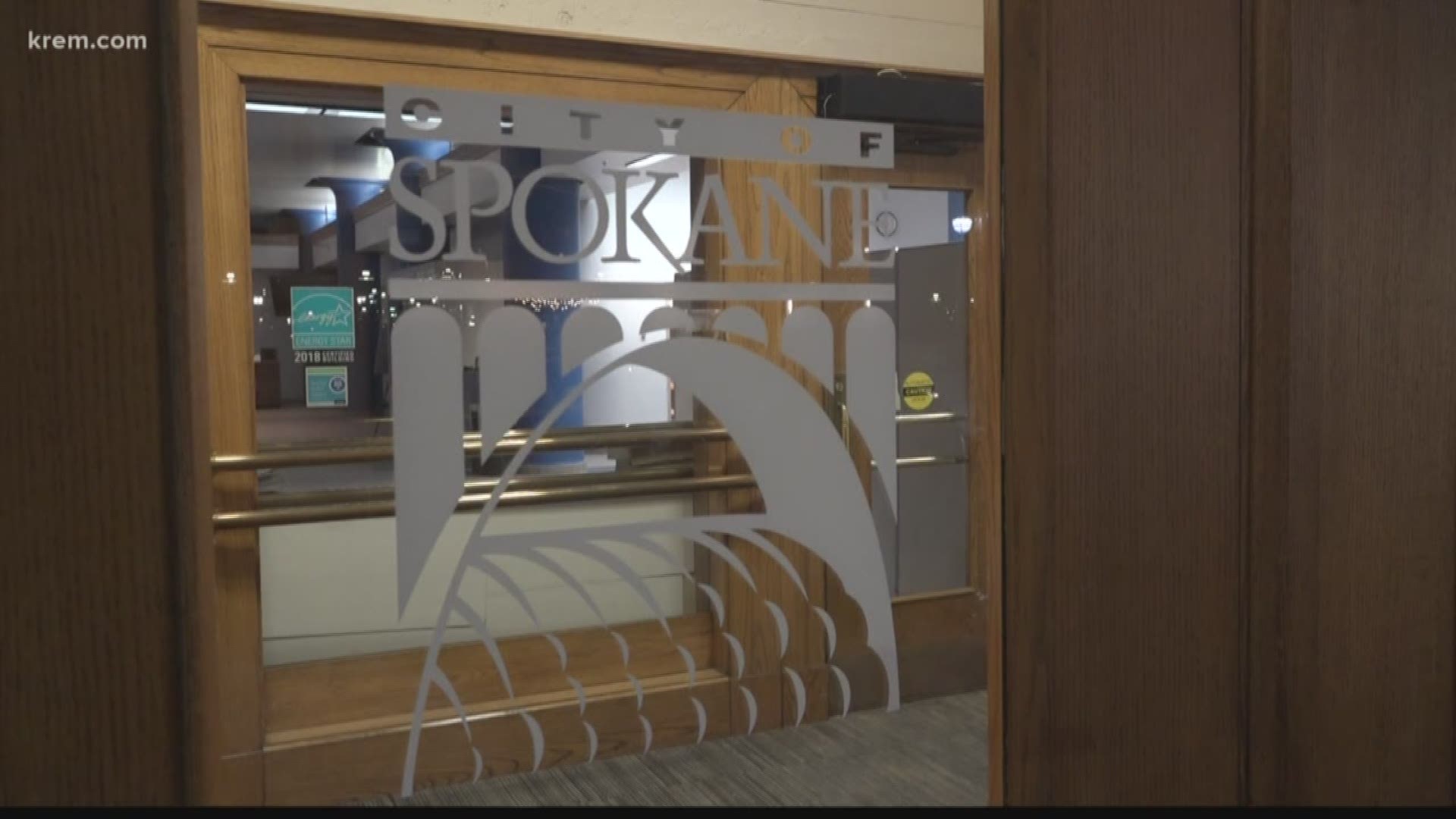SPOKANE, Wash. — Note: The above video is an explainer on the candidates who have announced their intentions to run for a Spokane City Council seat in 2019.
The Spokane City Council passed three ordinances, including opening City Hall's lobby to the public during business hours, allowing permanent bike share operations in the city and funding rebates for businesses that improve security measures on their property.
KREM reporter Casey Decker was at City Hall for the meeting and tweeted that all three ordinances passed.
Opening City Hall's Lobby
An ordinance that will open City Hall's lobby to the public during business hours has passed after the council delayed a vote on it seven times.
The ordinance allows people to stay in the lobby as long as they want during business hours as long as they aren't causing disruptions.
Councilwoman Kate Burke first proposed the ordinance in Nov. 2018 as cold winter temperatures arrived in the area.
The ordinance passed 5-2.
Council members Mike Fagan and Karen Stratton voted no.
"The fundamental problem with this is: the homeless and our employees have been caught in the middle of this battle now for I don't know how many months and no one wins," Stratton said.
Some questioned whether the ordinance has any real impact, as the current policy already allows anyone to stay in the lobby during business hours. Proponents argued that it does in preventing that policy from being arbitrarily changed in the future.
Permanent Bike Sharing
The council passed proposed amendments allowing bike sharing programs, such as LimeBike, to operate permanently and not be forced to provide helmets for riders.
The amendments allow for the programs to operate permanently. The changes also allow for companies to not provide helmets, instead requiring them to perform safety education and outreach.
The changes expand the area where riders can use bikes and scooters on sidewalks, adding a section of downtown between Bernard Street and Division Street to the restriction zone.
Some feel as if the restricted zone is dangerous because downtown traffic can make it hazardous for riders to take to the street.
"The first time I get hit by a driver who isn't paying attention or having a road rage incident because they don't think I should be on the road, I'm going to take your policy and I'm going to go to every single news station in town," said John Lemus, who commutes via electric scooter.
Nonetheless, the ordinance passed 6-1. Councilman Fagan was the only no vote.
Business Rebates
The council also approved an ordinance giving funds to provide rebates to businesses who invest in upping their security.
The ordinance provides funds to the Downtown Spokane Business District to give rebates to businesses taking part in a program called "Crime Prevention through Environmental Design," or CPTED.
The program, which has been used to assess what local property owners can do to make their property less crime-prone for about a decade, suggests changes such as the addition of extra lighting and cameras.
In order to be eligible for the rebate program, a property owner needs to be a Business Improvement District ratepayer who is currently in good standing with the district.
The rebate will match costs up to $2,500 per property for changes made in accordance with CPTED recommendations. If passed, the ordinance would allow $26,000 to be given to the Business Improvement District for the rebates.
On Monday, most of the testimony was opposed to the resolution. Critics from both conservative and liberal perspectives were concerned it could excessively increase the use of cameras downtown, raising privacy concerns as well as concerns about whether it diverts attention from other means of improving safety.
"We don't need cameras. We need support," said Alfredo LLamedo, a prominent activist.
Those on the council who supported the resolution, however, argued the program actually focuses more on non-camera solutions. They also felt the council should not micro-manage the BID's finances.
The resolution passed 6-1, with Councilwoman Kate Burke the lone nay vote.

